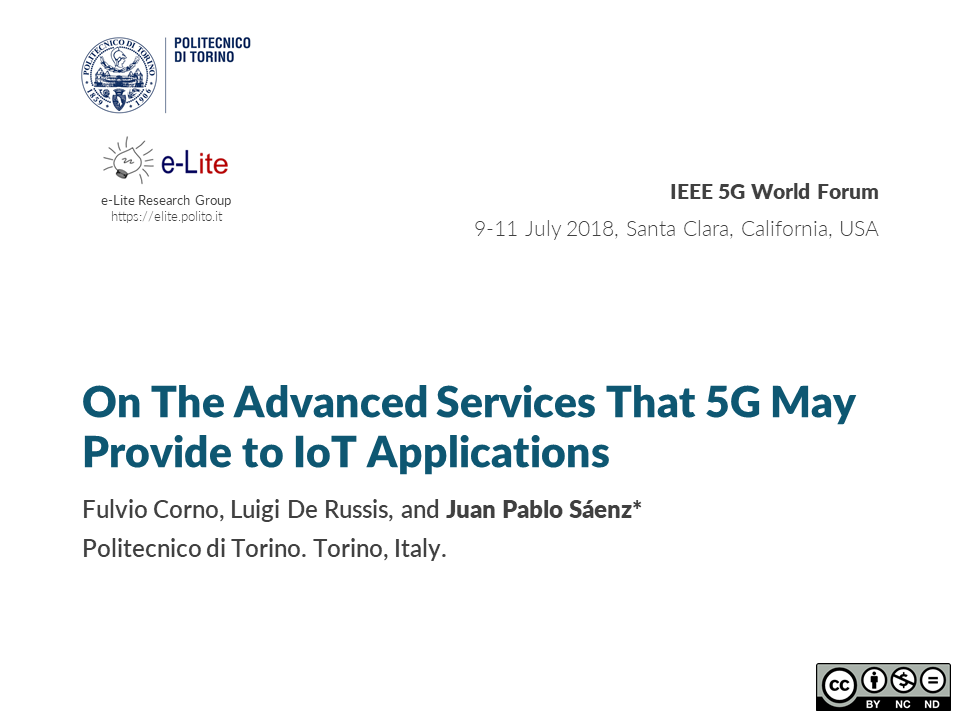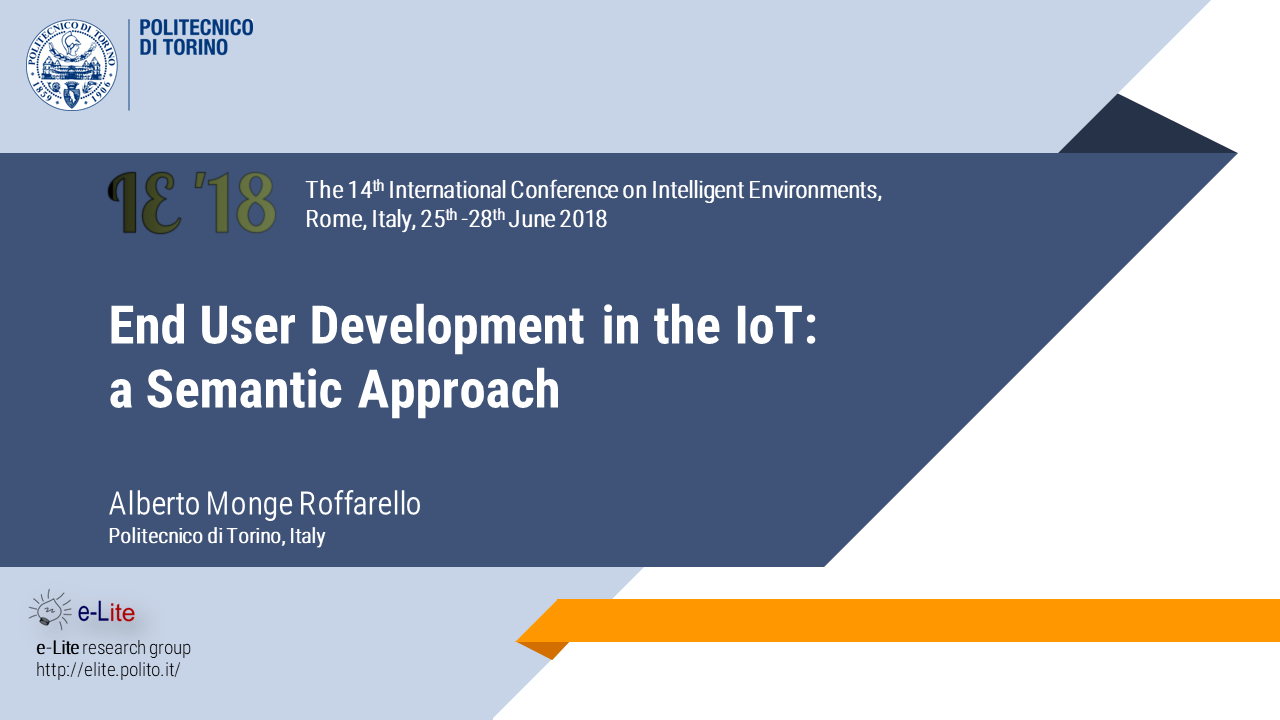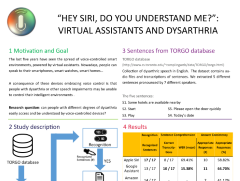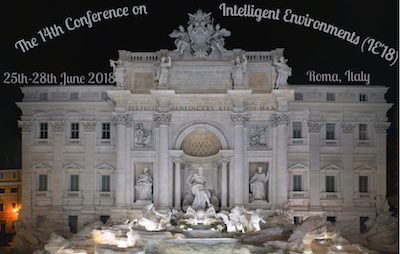- Details
On July 11, 2018, Juan Pablo Sáenz presented the paper On The Advanced Services That 5G May Provide to IoT Applications at the audience of the 1st Annual IEEE 5G World Forum (5GWF’18), held in Santa Clara, California, USA.
The advent of the 5G network is a key enabler to the growth of IoT, with the promise to innovate and revolutionize contemporary architectures by enabling new IoT-optimized services. Far from being just a bandwidth and latency improvement, the real potential of 5G lies in the intelligent management of network resources, and in the possibility of offering new services at the network level.
This paper aims at identifying which sets of services may be offered by a 5G network, by analyzing the computing, storage, and communication services that are currently offered by 11 major IoT platform providers, as well as those that are currently not being provided due to limitations of the cloud computing paradigm.
- Details
On June 28, 2018, Alberto Monge Roffarello presented the paper End User Development in the IoT: a Semantic Approach in the Doctoral Colloquium session of the 14th International Conference on Intelligent Environments (IE '18), held in Rome, Italy.
- Details
On June 26, in the context of the 7th International Workshop on the Reliability of Intelligent Environments (WoRIE 2018) in Rome, Fabio Ballati presented his work "Hey Siri, do you understand me?" Virtual assistants and dysarthria in the poster session.
Voice-activated devices are becoming common place: people can use their voice to control smartphones, smart vacuum robots, and interact with their smart homes through virtual assistant devices like Amazon Echo or Google Home.
The spread of such voice-controlled devices is possible thanks to the increasing capabilities of natural language processing, and generally have a positive impact on the device accessibility, e.g., for people with disabilities. However, a consequence of these devices embracing voice control is that people with dysarthria or other speech impairments may be unable to control their intelligent environments, at least with proficiency.
This paper investigates to which extent people with dysarthria can use and be understood by the three most common virtual assistants, namely Siri, Google Assistant, and Amazon Alexa. Starting from the sentences in the TORGO database of dysarthric articulation, the differences between such assistants are investigated and discussed. Preliminary results show that the three virtual assistants have comparable performance, with an accuracy of the recognition in the range of 50-60%.
- Details
"User Expectations in Intelligent Environments". this was the topic addressed by Fulvio Corno in his keynote speech opening the 7th International Workshop on the Reliability of Intelligent Environments (WoRIE 2018), exploring Issues and Opportunities in the Interaction of Intelligent Users and Intelligent Environments.
The talk analyze the differences between the expectations that end-users have from Intelligent Environments (that are well capture by the IE manifestos and seminal papers), comparing them with the actual content of the research papers published in the international journals of this research community.
- Details
The e-Lite research group will partecipate at the 42th IEEE International Conference on Computers, Software, and Applications (COMPSAC 2018), to be held in Tokyo (Japan), from the 23th to the 27th of July 2018. The conference, organized by the IEEE Computer Society, focuses on different aspects of computer science and engineering and it is organized in 10 symposia, ranging from Computing Education to Software Engineering, to Computer Architecture and Data Science.
- Details
The e-Lite research group will partecipate at the 14th International Conference on Intelligent Environments (IE '18), to be held in Rome, from the 25th to the 28th of June 2018. The conference focuses on Intelligent Environments (IEs), physical spaces into which IT and other pervasive computing technology are woven and used to achieve specific goals for the user, the environment or both. IEs have the ultimate objective of enriching user experience, better manage, and increase user awareness of, that environment.
Fulvio Corno, Fabio Ballati e Alberto Monge Roffarello will present different contributions, ranging from keynotes to papers, on different topics.







